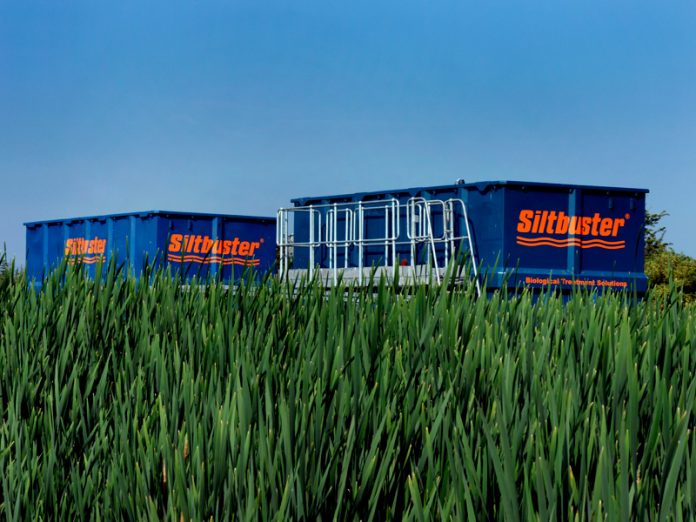Here, Rich Matthews, MD at Siltbuster, the UK’s leading water treatment specialist, discusses the latest thinking when it comes to environmental resilience, agile solutions, and the importance of making incremental gains.
The Water Industry is facing unprecedent levels of expectation to enhance its environmental credentials in a tighter regulatory environment. As a result, there is a growing commitment to seek more agile solutions in providing more responsive environmental solutions for programme efficiencies and regulatory compliance. Whilst there are the normal discussions on political, regulatory and affordability landscapes that can been seen as critical issues the industry faces, it is in fact the combination of the ageing infrastructure and traditional methodologies that have been the fundamental blockers to progress.
These constraints to change are now being released, recognising the scale of our infrastructure needs and the timeframe to achieve it. This now presents the true opportunity for more modular based thinking to address agility needs. Too often decisions have been based on going big with centralised systems to solve the large problems; it is now we realise that catchment based thinking, and addressing the problems at source, are the means of providing more resilience to our ageing infrastructure. However, it is important to recognise that this is not a term used to focus just on storm attenuation and farming practices but also existing sewage treatment assets and the large proportion of smaller works that have a key part to play in the improvement of environmental credentials.
Marginal Gains Theory
The focus on centralisation of wastewater and sludge management services has placed significant stress and risk on our existing network systems to convey the effluent for end of pipe treatment. This focus on centralisation of wastewater services for operational efficiencies has placed greater stress on our conveyancing wastewater network of pump stations and CSOs; resulting in increased risk associated with demographic shifts and seasonal population changes.
Whilst these large works have a large contribution in the river basin it is now needed to look at the larger proportion of smaller works (<10,000 PE) where there is a significant opportunity to focus on more of a marginal gains theory to address environmental resilience. Marginal gains theory is the theory that improving and optimising your performance by a small amount across a number of different areas will lead to much more significant, noticeable improvements overall. Time to start looking at smaller work enhancements in a more agile manner.
‘SMART’ Thinking
Modular packaged plants now have the opportunity to facilitate these responsive environmental needs; addressing the demands of today without compromising those of tomorrow. To see success, it will take a more incremental approach to building within a known design horizon, on a repeat basis, using proven technology.
Historically, there have been barriers in place, such as varying design standards or lack of supply chain integration, that have challenged the traditional delivery mechanisms; this is now changing. Modular package plants could hold the answer to providing the flexibility and resilience that we are seeking in this new challenging environment by effectively adopting a ‘SMART’ delivery concept – Standard, Modular, Agile, Responsive, Treatment.
Package plants offer an opportunity to optimise the existing asset base through a parallel treatment, reducing loadings or stress and enabling process headroom to be achieved, particularly during seasonal loads.
An example of this has been the use of package plant biological units, such as submerged aerated filters, to support shortfalls in biological capacity. However, with the breadth of treatment solutions now available, complete side stream activities can be configured to allow additional capacity to be accommodated within a small footprint. Running in parallel with the existing process also means the existing assets continued to be sweated to optimise asset life and ensure the greatest ROI.
The ability to have package plant solutions for liquid solid separation in addition to biological processes offers significant flexibility in the way solutions can be deployed in the process streams. For example, localised treatment of the return liquors from tertiary solids processes can increase capacity elsewhere on the site/process flows.
Summary
The industry is becoming more agile in seeking package plant solutions for a wider range of applications to manage flows and loads. The consideration of modular package plants offers the flexibility to be relocated or used in phases to accommodate the changing needs of the site or catchment. This is particularly relevant to the large percentage of smaller sites in addressing marginal gains for improvement. To achieve confidence in enhancing the Water Industry’s environmental credentials it is essential that the momentum continues for more offsite built solutions and that they demonstrate a responsive approach for wastewater infrastructure resilience.
Siltbuster has experience of working across a variety of sectors and clients who have significant challenging programmes and environmental constraints. The business prides itself on being responsive to provide water treatment solutions; to resolve, protect or enhance existing infrastructure projects across the UK.
To find out more about Siltbuster, visit www.siltbuster.co.uk.



